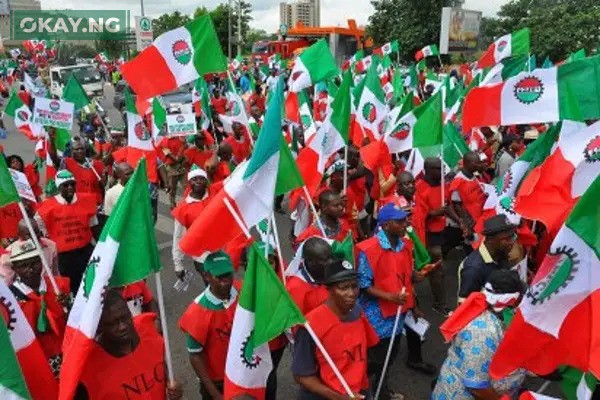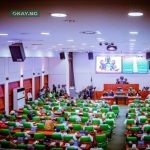The Nigeria Labour Congress (NLC), the nation’s foremost labour union, has unleashed a scathing critique of the Minister of Power, Adebayo Adelabu, over his recent pronouncement that 150 million Nigerians are now experiencing “adequate electricity” with a current generation of 5,500 megawatts. In a strongly worded statement issued on Wednesday, NLC President Joe Ajaero dismissed the Minister’s claim as “outrageous,” “pretentious,” and an outright “insult” to the lived realities of millions grappling with incessant power outages and escalating electricity tariffs.
Ajaero minced no words in expressing the union’s disbelief and anger. “This wild assertion is not only pretentious but also a bad joke on a people daily confronted by grinding darkness, outrageous electricity tariffs, and a power sector manipulated for private profit at the expense of national progress,” he declared. Drawing a sharp analogy, the NLC President quipped, “Perhaps, the Minister wants to perform Jesus’ miracle of feeding 5,000 persons with 5 loaves of bread and 2 fish.”
The NLC argued that for such a claim to hold any water, Nigeria should be generating no less than 150,000 megawatts, aligning with the global benchmark of 1,000MW per one million people. The union highlighted the stark reality that Nigeria’s peak electricity generation has never surpassed the touted 5,500MW, and even that figure remains inconsistent and unreliable.
“To suggest that over 150 million Nigerians have access to reliable power in a country that struggles to generate a meager and inconsistent 5,500 megawatts—far below the global benchmark of 1,000MW per one million people—is to insult the intelligence and lived realities of Nigerians,” the statement asserted. The NLC further questioned the basis of the Minister’s assertion, asking, “Is Nigeria’s standard different from the world standard? Where are the power plants that make this level of supply possible? Where is the upgraded transmission infrastructure to support such output? Why are our homes still shrouded in darkness and our factories shutting down daily?”
The labour union offered a starkly contrasting picture of the everyday experience of Nigerians. “The truth is that millions of Nigerians, from urban slums to rural communities, continue to live without access to electricity. The few who have access do so under constant threat of disconnection, blackouts, and financial exploitation through a complex pyramid of inflated tariffs and arbitrary billing,” the NLC lamented. This paints a vivid picture of the struggles faced by ordinary citizens, forcing many to make difficult choices between essential needs and electricity bills.
The NLC traced the roots of the current energy crisis back to the 2013 power sector privatization, a move they described as a “grand betrayal.” According to the union, the federal government handed over critical national infrastructure to private entities, allegedly cronies, for a mere N400 billion. “Over a decade later, there has been no improvement in service delivery. Yet, these same GenCos (Generation Companies) and DISCOs (Distribution Companies), which have failed the nation woefully, are to receive over N4 trillion in public subsidies with zero accountability,” the statement revealed, highlighting a significant point of contention and perceived injustice.
The lack of tangible improvements despite substantial financial injections into the privatized sector raises serious questions about the effectiveness and accountability of the current power structure. “It is disheartening that after over 12 years of privatisation, the power sector has not experienced any significant capacity expansion. No substantial infrastructure renewal despite trillions spent. Unfortunately, and predictably too, there has been no sanction for incompetent DISCOs and GenCos as outlined in the Privatisation agreement because the buyers seem to be the same as the sellers,” the NLC alleged, suggesting a potential conflict of interest and a lack of regulatory enforcement.
Adding to their concerns, the NLC revealed the government’s plan to sell off the Transmission Company of Nigeria (TCN), the last remaining publicly owned entity in the power value chain. The union vehemently opposed this move, labeling it not as reform but an “economic ruse dressed in bureaucratic doublespeak” and an attempt by the “ruling elite” to further seize control of the power sector at the expense of the masses. “We are worried that the already hijacked entities in the name of privatisation have grossly underperformed, and you want to go the same route with the remaining one – the outcome, of course, will not be different,” the NLC cautioned.
The recent hike in electricity tariffs, masked under the “Band A, B, and C” classification, also drew sharp criticism from the NLC, which described it as a “sophisticated scheme to legalize exploitation.” The union pointed out the stark disparity between the revenue generated by DISCOs and the quality of service provided. “While DISCOs have raked in over N700 billion from helpless consumers, power supply remains epileptic, erratic, and inaccessible to the majority. Millions of Nigerians are now forced to choose between food and electricity bills,” the statement emphasized, underscoring the severe economic impact on households.
The NLC further highlighted the plight of workers within the power sector, who they say are “poorly paid and grossly undervalued” despite their efforts to maintain the “crumbling system.” The union contrasted this with the alleged enrichment of top officials and private sector players, describing it as a “festival of regulatory impunity.” This human angle adds a layer of social injustice to the narrative, emphasizing the impact of the power crisis on individuals at different levels.
In a resolute conclusion, the NLC declared that the current situation is not a reform but “an organised profiteering.” They called on the government to cease what they termed “propaganda and statistical gymnastics” and to treat Nigerians with respect by delivering tangible improvements in power supply rather than resorting to “fabrications and false hope.”
“Nigerians are tired of propaganda and statistical gymnastics. Cease from insulting the intelligence of the people with fabrications and false hope. Nigerians deserve more respect. If you generate, transmit and distribute more power, we will see it in our homes and factories; not on the pages of newspaper and on television,” the NLC asserted.
Vowing to continue their advocacy for the Nigerian people, the labour union declared, “We are prepared to deploy all democratic and lawful means to continue to expose and resist all grand deception targeted at the Nigerian masses. We will continue in our quest to restore equity and reclaim the power sector for the Nigerian people.” This strong stance signals a potential escalation in the conflict between the labour union and the government over the handling of the power sector.











